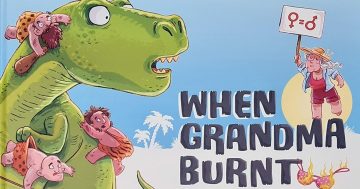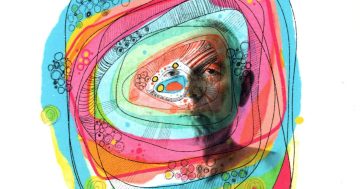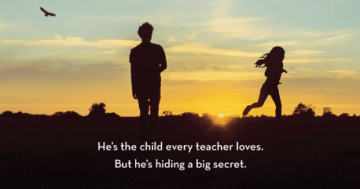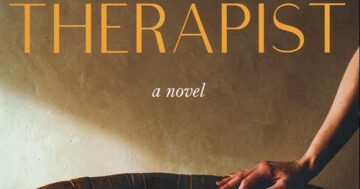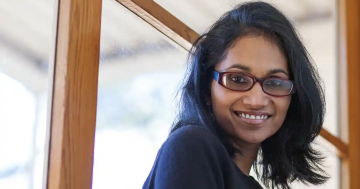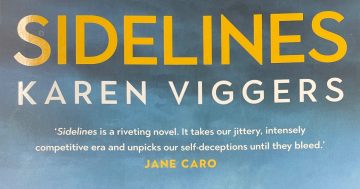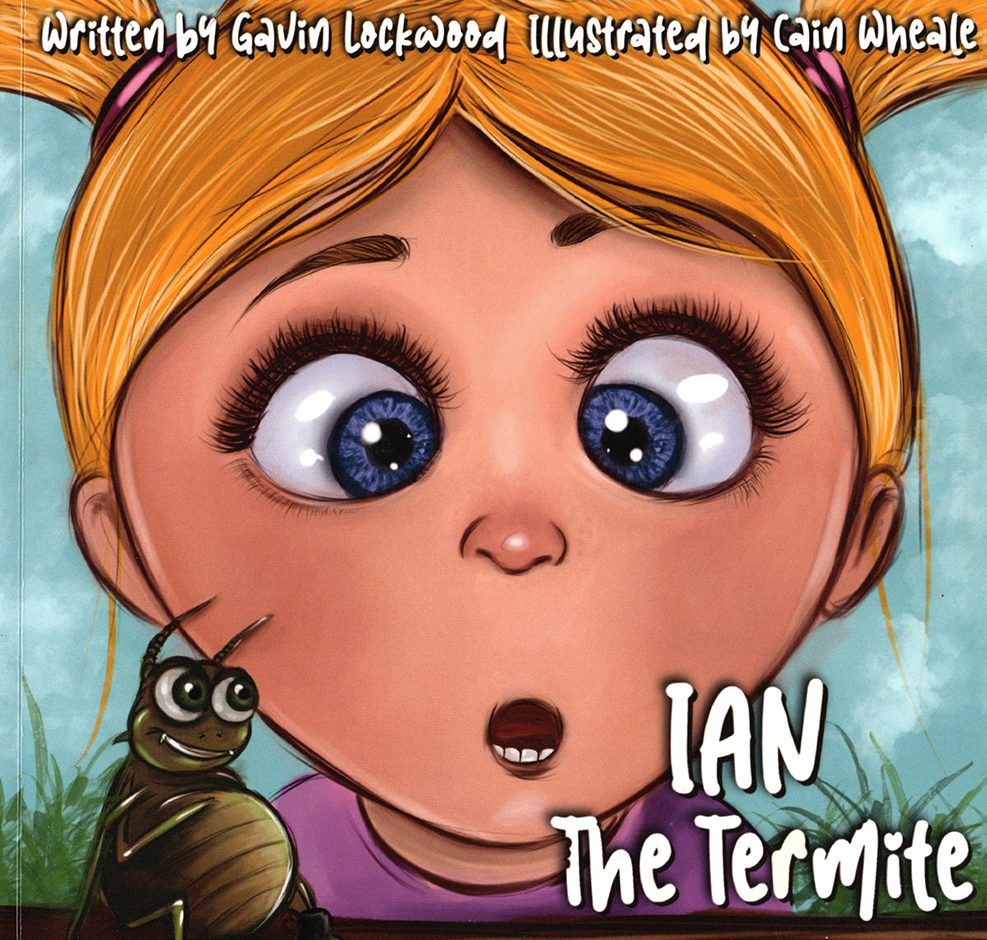
Ian the Termite is a joyous story about love. Photo: Supplied.
Our 2023 Australian of the Year, Taryn Brumfitt, has come out with a loud and clear message about body positivity. But she goes further than that and suggests that we could encourage our young people to follow social media posts about worthwhile actions rather than those based on appearance.
It seems fitting, therefore, to start this year’s Canberra Bookshelf with a cheery little book by debut picture book author Gavin Lockwood. Much to my delight, both the author and his book Ian the Termite (self-published, 2022, illustrated by Cain Wheale) break more than one mould.
In presenting his child heroine with a very unusual pet, a termite, Gavin makes quite clear his central messages that beauty is in the eye of the beholder and that we love our family and friends (and pets) for themselves, not because of some predetermined notion of what they should look like or be.
There’s much for grown-ups and children to talk about in this colourfully illustrated rhyming story and Ian is already working on his next book.
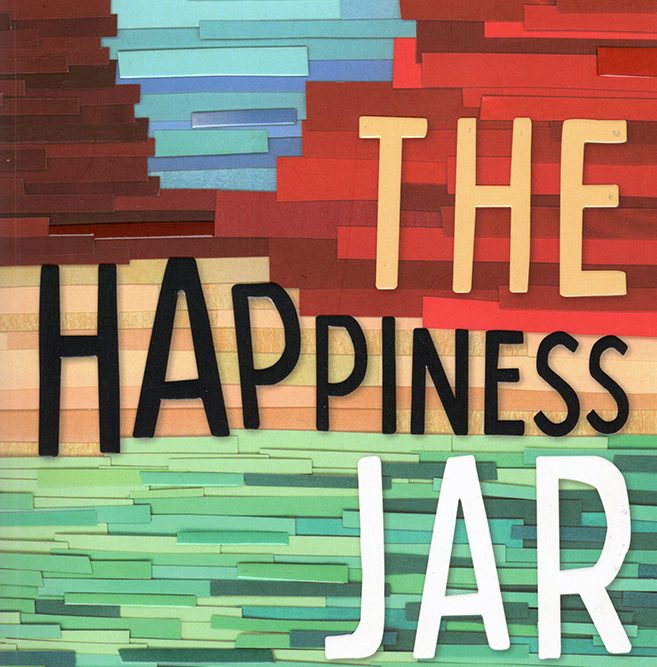
The Happiness Jar by Samantha Tidy has been republished. Photo: Supplied.
For equally weighty themes in beautiful packages, I refer adult readers this month to a work of fiction by local publisher and writer Samantha Tidy. She has published her 2013 novel The Happiness Jar (Storytorch Press, 2023, cover design by Flo and Ebb, artwork image by Jessica Moore) in a new edition, both different in appearance and with some textual and structural details.
Dealing with multiple themes, this novel presents a deceptively simple plot. Rachel dies at 27 with cystic fibrosis and sets her mother and brother the task of visiting Varanasi and a remote Aboriginal community out of Broome, taking with them her ashes.
Pushing her family beyond their comfort zones, she enables them to learn something about the life she embraced and of which they knew nothing till her death. She also enables them to find bolder selves, embrace life and adventure, and find a happiness they had long lacked.
Thematically the book tackles concepts of family, issues of terminal hereditary illness, the ignorance we have of remote Aboriginal communities and the inadequacy of solutions offered to them by white administrators. Through Rachel’s father, Brian, who left the family when she was a small child, it also explores the plight of Vietnam veterans, a forgotten generation.
The author wears her passions on her sleeve, creates a vivid sense of place in both settings and, from the start, traps us in the emotional turmoil of her book people.
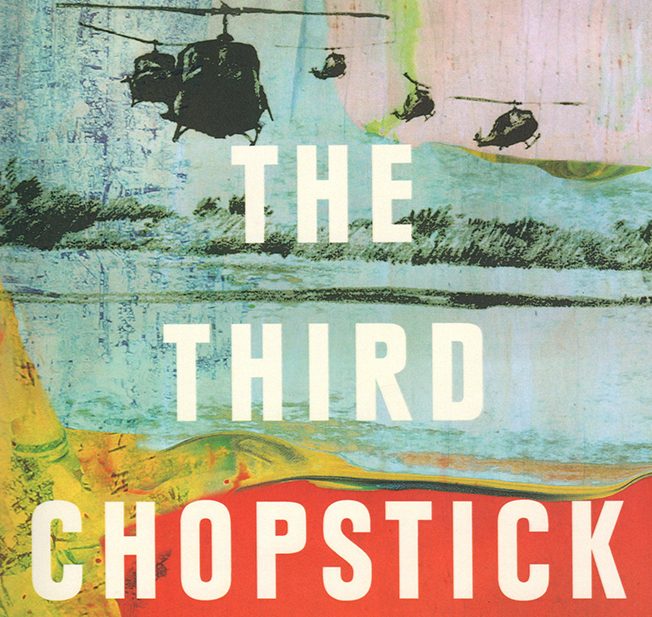
The Third Chopstick by Biff Ward is part memoir and part reflection on the Vietnam legacy. Photo: Supplied.
Another study of the Vietnam veteran is found in Biff Ward’s deeply affecting part memoir, part social history The Third Chopstick: Tracks through the Vietnam War (independently published through MoshPit Publishing, 2022, cover design by Design by Committee with images under licence from Wiki Commons).
Biff Ward had been politically active as a young woman and was deeply involved in the anti-war movements of the sixties. It was ‘chance’ that connected Biff to her cousin Hugh about whose Vietnam service she knew nothing at the time of the protests.
It was also ‘chance’ that led her to Ray Fulton, the vet whose story dominates this work. But it is clear that Biff’s passionate pursuit of the stories of the men in this book had less to do with chance and more with personal roots.
She understood from childhood trauma what it was to sit with her back against the wall. She wanted to see the other side of the protest coin, but more than observe: to feel and have the physical sense of battle.
This is a powerful social history, a compassionate piece of writing as much revelatory of its extraordinary author as her subjects. The book is full of grief, that of the author, the veterans, and the society that let them down. Many in the Boomer generation will immediately identify; young generations will learn much from this work.
Barbie Robinson is co-founder and a content creator for Living Arts Canberra, a not-for-profit media outfit supporting arts and community in the Canberra region and books worldwide through its website, podcast interviews and a 24/7 internet radio station at livingartscanberra.com.au.












